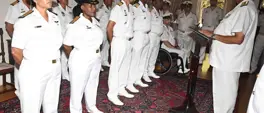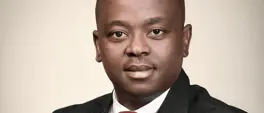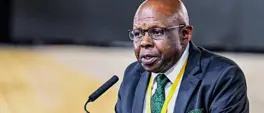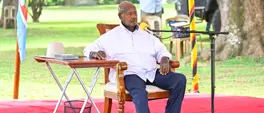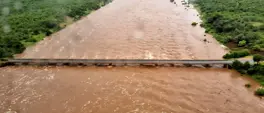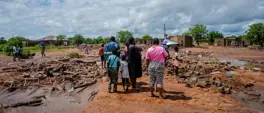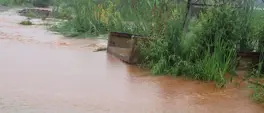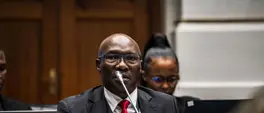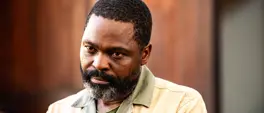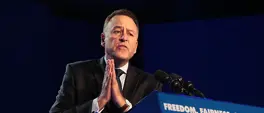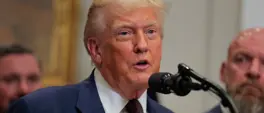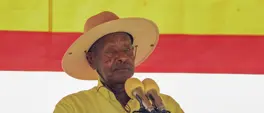UK PM says in talks over third country 'return hubs' for migrants
AFP
15 May 2025 | 13:39The UK leader is under pressure to reduce immigration and cut the number of irregular migrants arriving on UK shores, many in small boats, amid the rising popularity of the hard-right, anti-immigrant Reform Party.
TIRANA - The UK is in talks with different countries about setting up "return hubs" for failed asylum seekers, Prime Minister Keir Starmer said Thursday on a visit to Albania seeking to bring down immigration.
The UK leader is under pressure to reduce immigration and cut the number of irregular migrants arriving on UK shores, many in small boats, amid the rising popularity of the hard-right, anti-immigrant Reform Party.
"We are in talks with a number of countries about return hubs," Starmer told a joint news conference with his newly reelected Albanian counterpart Edi Rama.
Starmer declined to explain how the hubs would work in practice or say with which countries he was in talks.
But he said his new Labour government had been left a "mess" by the previous Conservative leadership, which he said had failed to process asylum claims.
The prime minister's official spokesman said: "This will basically apply to people who have exhausted all legal routes to remain in the UK but are attempting to stall, using various tactics - whether it's losing their paperwork or using other tactics to frustrate their removal."
'MODEL TO BE TESTED'
Last July, Starmer's Labour government abandoned a scheme put in place by the Conservatives to deport undocumented migrants to Rwanda.
Rama said hosting a new UK return hub in Albania was not on the table, adding that an earlier deal with Italy had been a "one-off".
The scheme by Italy for Italian-run facilities to process migrants to be based in Albania is currently bogged down in the courts.
"The model that we've brought to Albania in cooperation with Italy ... is a model that takes its time to be tested," said Rama.
"If it works, it can be replicated, but not in Albania, in other countries of the region."
In March, the European Commission unveiled a planned reform of the 27-nation bloc's return system, opening the way for member states to set up migrant return centres outside the EU.
Earlier this week, Starmer unveiled tough new immigration policies that included cutting the number of overseas care workers, doubling the length of time before migrants can qualify for settlement in the country and new powers to deport foreign criminals.
The announcement was widely seen as an attempt to fend off rising support for anti-immigrant firebrand Nigel Farage's hard-right Reform UK party.
Labour vowed in its general election manifesto last year to significantly reduce net migration, which stood at 728,000 in the 12 months to last June.
It peaked at 906,000 in 2023 after averaging 200,000 for most of the 2010s.
ASYLUM FIGURES TRIPLED
In addition to high levels of legal migration, the UK has also seen unprecedented numbers of irregular migrants. And the number of asylum seekers has tripled to 84,200 in 2024, compared to 27,500 between 2010 and 2011.
More than 12,500 migrants have made the perilous Channel crossing so far this year, according to an AFP tally based on figures from the UK's interior ministry.
Under a deal between the previous Conservative government and Tirana in 2022, Albanians arriving in the UK on small boats across the Channel can be sent back immediately.
Starmer's Downing Street office said in a statement there had been a 95 percent reduction in Albanian small boat arrivals in the last three years, while the number of Albanians returned to the country had doubled in the past two years.
Some 5,294 Albanians were sent back in 2024, more than double the 2,035 Albanian nationals returned two years earlier.
Starmer also announced an expansion of the Joint Migration Taskforce in the Western Balkans, set up with Albania and Kosovo, to include North Macedonia and Montenegro.
The expansion would allow greater intelligence sharing to intercept smuggling gangs and deploy UK-funded drones to snare gangsters funnelling migrants through the Western Balkans corridor to the UK.
Rama has vowed to integrate the Balkan nation into the European Union, and was also set to meet EU chiefs Ursula von der Leyen and Antonio Costa on Thursday in Tirana.
Get the whole picture 💡
Take a look at the topic timeline for all related articles.
